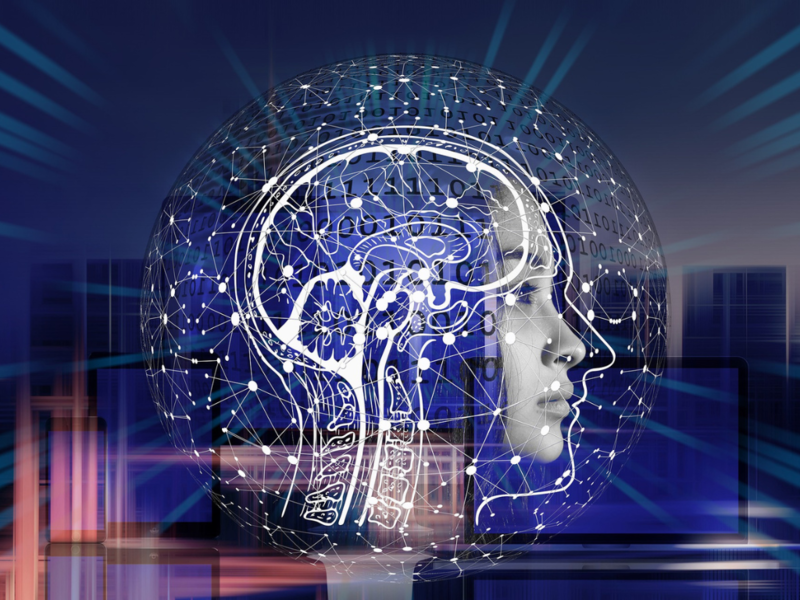September 21, 2023
In recent months, there has been increasing concern in academic and educational circles regarding the use of text-generative artificial intelligence (AI), such as ChatGPT, Bing, and the latest Co-Pilot integrated into the Microsoft Office suite.
One of the main concerns is that students may use generative artificial intelligence tools to do so
cheating or plagiarizing your written assignments and exams. In fact, one latest survey
among students found that nearly one in three students had used some form of AI, such as essay writing software, to complete their studies. About a third of college students surveyed (sample size 1,000) in the US have used an AI chatbot like ChatGPT to complete written assignments, and 60% used these programs on more than half of their assignments.
ChatGPT-type generative AI tools are capable of imitating human writing, and some students use them to cheat. The study found that 75% of students believe that using programs to cheat is wrong, but they still do it, and nearly 30% believe that their teachers are unaware of the use of such tools. The study also notes that some teachers are considering including ChatGPT in their lessons or following calls for a ban, with 46% of students saying their teachers or institutions have banned the tool for assignments. This has led to request stricter regulations and penalties
for academic misconduct involving AI.
Another concern is that the use of generative AI could lead to a Decreasing students’ writing and critical thinking abilities, as they increasingly rely on automated tools to get their work done. Some academics argue that this can have a negative impact on the quality of education and ultimately harm student learning outcomes.
These concerns have led some universities to do just that prohibits the use of generative AI in their academic program. Eight of Britain’s 24 prestigious universities, the Russell Group, have declared the use of AI bots for assignments an academic offence, including Oxford and Cambridge. Meanwhile, many other universities around the world are rushing to revise it
anti-plagiarism policy citing concerns about academic integrity. Several universities in Australia have had to change their examination and assessment procedures use pencil and paper again.
However, there are also those who argue that generative AI has this ability potential to revolutionize education and improve the student learning experience. For example, some experts argue that generative AI can be used to provide needs
personalized feedback and support to students, helping them identify areas of weakness and improve their skills adaptively.
Generative AI is a subset of artificial intelligence (AI) that focuses on creating new data or content, rather than analyzing and interpreting existing data. That trained generative transformer (GPT) is a type of generative AI model that uses deep learning techniques to generate natural language text. The latest versions of GPT, GPT-3.5 and GPT-4, large language models trained on large text datasets, are capable of generating human-like text with high levels of coherence, complexity and diversity. GPT-3.5 and GPT-4 are examples artificial general intelligence (AGI), namely the ability of an AI system to perform any intellectual task that a human can perform. Unlike artificial narrow intelligence (ANI)designed to perform a specific task, AGI is designed to do it perform multiple tasks and generalize knowledge across multiple domains. Although GPT-3.5 and GPT-4 are not true AGI systems, they represent significant progress in achieving AGI by demonstrating the ability to perform a variety of linguistic tasks and produce human-like text. The development of generative AI models such as GPT-3.5 and GPT-4 has the potential to revolutionize many fields, including natural language processing, creative writing, and content creation.
As generative AI tools have become more accessible to the public in recent months, they are quickly being integrated into a variety of fields and industries. This creates an urgent need for universities to develop a education policy on AI that prepares students to work with this technology and understand its principles. There are several reasons that support the need for this:
-
Graduates must have a strong understanding of AI principles in order to be successful in fields where AI is already being implemented, such as economics, finance, health, and transportation. AI education policy can provide students knowledge And Skills necessary to work with AI at a professional level.
-
AI can be used improve student learning
provides personalized feedback in real-time and adapts to individual learning styles. By educating students about AI, universities can help prepare them to become active participants in the development and application of AI technology, ensuring the technology benefits society as a whole. -
As the use of AI in education and assessment becomes more commonplace, it is important for students to understand the principles behind the technology that must be maintained Academic integrity and avoiding cheating, as mentioned previously. Educational policies on AI can teach students this
ethical considerations around AI, such as bias and fairness, as well as the potential consequences of using AI in academic contexts. -
Artificial intelligence technology is developing rapidly and will likely play an increasingly important role in society in the years to come. By providing AI training to students and teachers, universities can help ensure that their graduates are prepared to contribute to the development of AI and address the ethical, social, and economic issues that may arise as the use of AI expands. This training should also help students become competent and responsible users AI in your daily life.

“Entrepreneur. Internet fanatic. Certified zombie scholar. Friendly troublemaker. Bacon expert.”


:quality(70)/cloudfront-us-east-1.images.arcpublishing.com/elfinanciero/ZTJV57HVVJGODLL3YBCDPNWTAQ.jpg)




